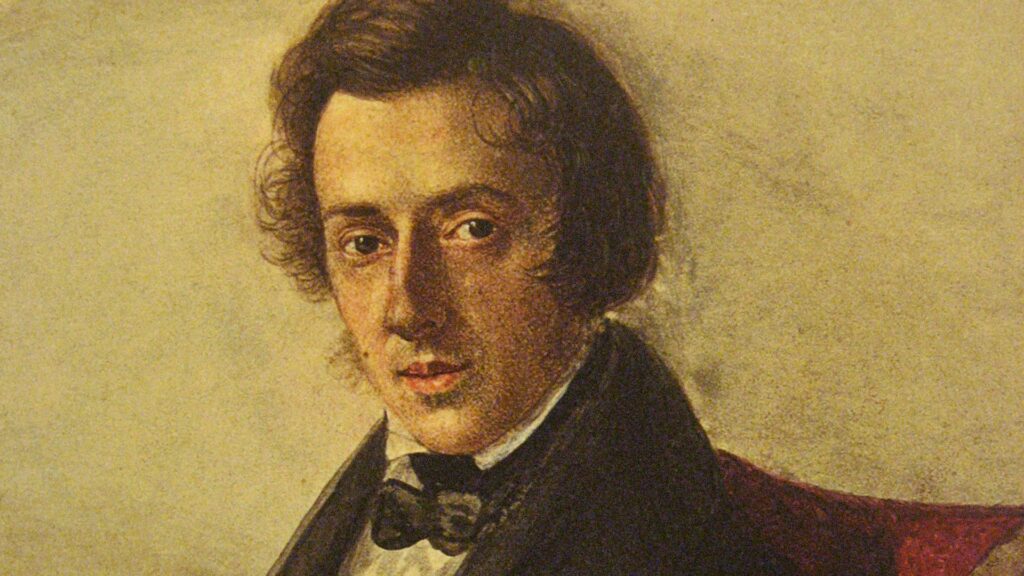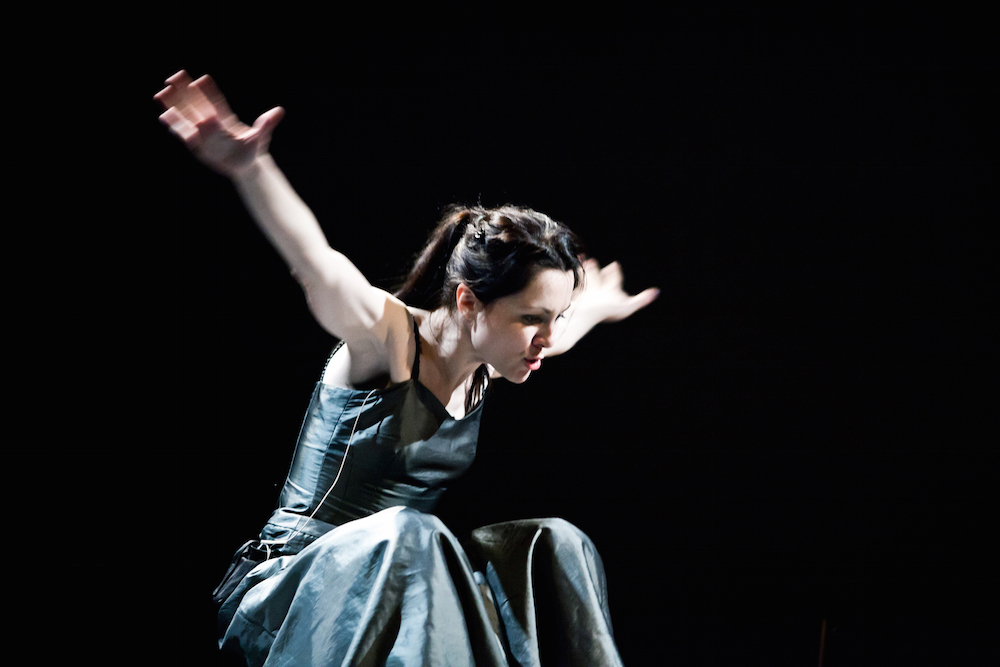Share This:
November 12, 2015 | Theatre,
The Artist Without Their Art
Take a moment to consider: What is an artist without their art?
The response may be a list of labels: a teacher, an aunt, an outdoor enthusiast.
The response may be more universal: imperfect, striving, human.
Or the response may be trivialities: someone drinking orange juice this morning because the coffee grinder broke.
Chopin Without Piano, however, argues that an artist without their art is a new form of truth.
Allow me to explain. Michał Zadara and Barbara Wysocka’s production is set against a full orchestra playing several of Chopin’s piano concertos. The first is Piano Concerto No. 1 in E minor, Op. 11, which has a stately build to the grand entrance of the soloist. But in this play, the piano never comes in. In its place, we read:
“exposition of the majestic theme
it has to be played fortissimo”
Instead of piano, text—rich, gorgeous, rhythmic text—ebbs and flows with and against the orchestra. The Poet of the Piano is transformed into a poet of words.
Before I read the script of Chopin Without Piano, I was wary of replacing Chopin’s music with text. My main worry was whether or not I would understand the context of the show. It was originally written in Polish for a Polish audience, and as an American reader looking at an English translation, I was uncertain what intricacies I might miss. My second concern was in relation to my initial question: How could one possibly replace the depths of Chopin’s music?
On both accounts, my concerns were unfounded. Zadara and Wysocka have carefully crafted this performance so anyone, regardless of their knowledge of Chopin or Polish history, is able to understand the situation at hand. Through poetry, musings, historical references, and Chopin’s own letters, we quickly learn that Chopin has come to represent the struggles of the Polish nation. His music reflects the longing, the disconnection, and the hope that the Polish people have experienced throughout history. Zadara argues, however, that simply knowing the composer’s music and origins is not enough. History needs more than the piano. The text puts it this way:
“we need to listen to or play another Chopin concerto and we have to concentrate
which allows us to forget the question that still hangs over us
what for”
People say that music is the universal language, and generally I agree. A good piece of music can spark deep emotional reactions in people across the globe. But the impact of music is highly personal and contextual. A single line of music could trigger contrasting memories, leading one person to access a sense of futility and another to access hope in the same moment. Due to this phenomenon, music can come to represent a plethora of ideas, and there is beauty in that.
There are clear limits to music’s power, though. It alone cannot explore things with any specificity. Listening to a Chopin concerto will not tell you what Chopin was thinking the moment he composed that piece. We can guess how he was feeling, but without fully understanding his context, even that is tricky. According to Zadara:
“Music – by trying to evade definite meanings, by
trying to be untranslatable into semantic meaning – has found itself in the situation of
being meaningless.”
So, by removing the piano and replacing it with text, we are given the meaning—the specificity—we cannot get through music. With words, Zadara reclaims Chopin’s nature not as a Polish figurehead, but as a man constantly searching. Chopin possessed what the text calls “piano radicalism.”
Why, you might wonder, is it so important for us to have this deeper understanding of an artist who has been dead over a century? How does the text of Chopin Without Piano help us better understand ourselves today? I will admit I have some theories, but I feel that, as in music, the answer is ultimately a very personal one. However, I will leave you with one last thought from Zadara, that I feel encapsulates the piece beautifully:
“Only by fighting for our past can we control a new present – which
would make real the promise present in each one of Chopin’s pieces – this one as well:
culture can be something other than the decoration of life
culture can be the unity of life, thought, imagination and will”
—
ArtsEmerson presents Centrala’s Chopin Without Piano NOV 11 – NOV 14 at the Paramount Theater (559 Washingston St. Boston, MA 02111). Tickets can be purchased at artsemerson.org or by calling 617.824.8400.






Leave a Reply